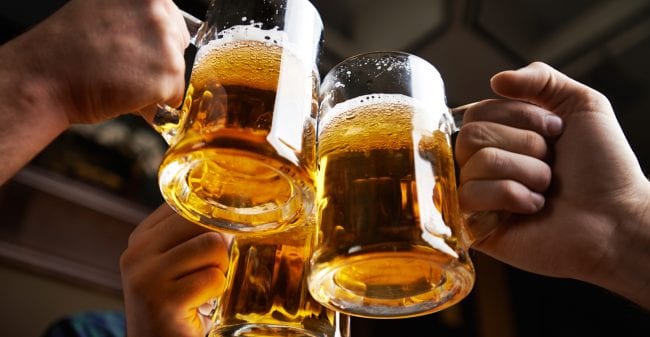A GLASS of red a day, I’m afraid, will not keep the doctors at bay.
Scientists have long known that while the old vino does indeed contain healthy antioxidants, for us to benefit from its effects, we would need to drink several litres – with the high intake of alcohol therefore cancelling out the good stuff.
In fact the World Health Organisation (WHO) says there is no amount of alcohol that can be considered safe for health.
But how bad can a glass or two of vino with your tapas each day be for you?
Surely it is not as bad as going on a binge-drinking session – commonly referred to as the sesh – every weekend?
Well according to a new study published in the EP Europace magazine of the European Society of Cardiology, it very well could be.
The investigation found that daily intake of alcohol is in fact much more harmful to cardiovascular health.
“What our work indicates is that drinking less often is important to avoid atrial fibrillation,” explained Dr. Jong-Il Choi, from the College of Medicine of the University of Korea (South Korea).
Atrial fibrillation is the most common type of cardiac arrhythmia – also known as irregular heartbeat.

Symptoms include palpitations, chest pain or discomfort, shortness of breath and dizziness and fainting.
For a person suffering from it, the risk of having a heart attack is five times greater.
Researchers studied almost 10 million people between 2009 and 2017 and recorded their drinking habits and correlated the results with those who developed the heart condition.
Researchers found that the risk of atrial fibrillation increased by 8% for every drink over a week, but the number of sessions was the strongest risk factor.
Those who drank every day had a 40% higher risk of developing an irregular heartbeat than those who consumed alcohol twice a week.
Dr Choi said: “Our study suggests that frequent drinking is more dangerous than infrequent binge drinking with regard to atrial fibrillation.
“The number of drinking sessions was related to atrial fibrillation onset regardless of age and sex.
“Repeated episodes of atrial fibrillation triggered by alcohol may lead to overt disease.
“In addition, drinking can provoke sleep disturbance which is a known risk factor for atrial fibrillation.”
Binge drinking, meanwhile, did not show any clear link with new-onset atrial fibrillation, according to the Korea study.
Dr Choi added: “Preventing atrial fibrillation itself, rather than its complications, should be our first priority.
“Alcohol consumption is probably the most easily modifiable risk factor.
“To prevent new-onset atrial fibrillation, both the frequency and weekly amount of alcohol consumption should be reduced.”









